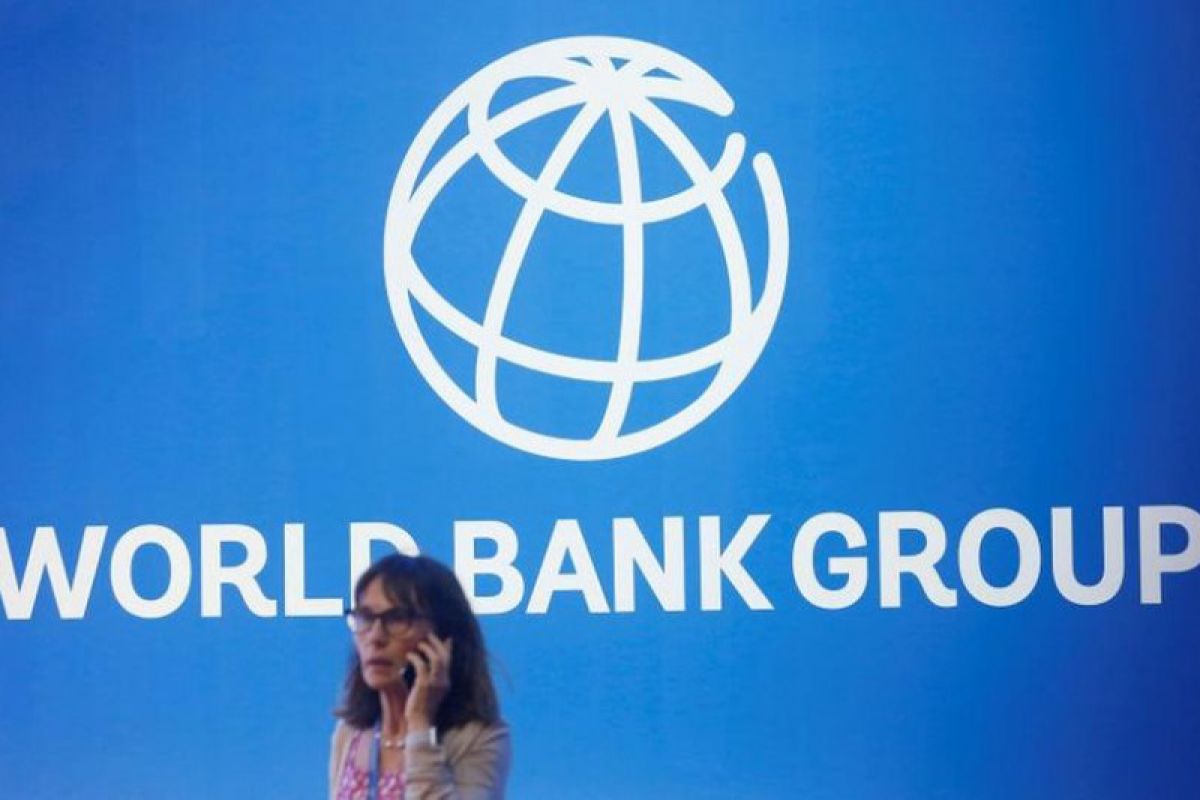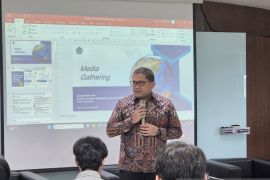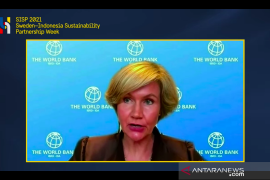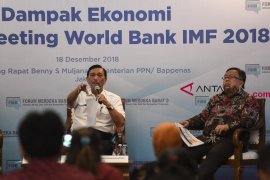This funding complements various government efforts to protect the financial and economic sectors, as a whole, as well as to tackle the impacts of the COVID-19 pandemic.Jakarta (ANTARA) - The World Bank's (WB’s) Board of Executive Directors approved funding of US$400 million, or Rp5.6 trillion, to support the Indonesian government's reforms to deepen and enhance efficiency and bolster the financial sector's resilience.
WB Director for Indonesia and Timor Leste Satu Kahkonen stated here on Friday that the new funding is designed to assist Indonesia in lowering vulnerability of the financial sector impacted by the COVID-19 pandemic.
"This funding complements various government efforts to protect the financial and economic sectors, as a whole, as well as to tackle the impacts of the COVID-19 pandemic," he stated.
Kahkonen remarked that funding for the new development policy will support various reforms in the financial sector through three key approaches.
Under the first strategy, the funding focuses on deepening the financial sector by broadening access to financial services, including for younger generations and women; expanding the scope of financial products; and offering incentives for long-term deposits.
"Several efforts will reduce Indonesia's vulnerability to the outflow of foreign portfolios," he remarked.
In the second measure, the funding is intended to increase efficiency and reduce costs in the financial sector by strengthening bankruptcy frameworks and the rights of creditors, protecting consumers and private data, and building a more efficient and quick payment system by capitalizing on digital technology.
"This will facilitate the payment of large-scale social assistance to the vulnerable community during the crisis," he remarked.
In the third approach, the funding targets to drive the capability of the financial sector to withstand upheavals by bolstering the framework of resolution to avoid various disturbances to financial activities in the event of a bank failure, improving effectiveness in supervising the financial sector, and applying sustainable financial practices, according to Kahkonen.
"By making financial services more transparent, reliable, and technology-oriented, deposits can be distributed to most productive investment in a more efficient, faster, and safer way," he stated.
Hence, funding to strengthen the financial sector may open up opportunities for the public to invest for future and protect themselves from various unexpected upheavals.
The COVID-19 pandemic has caused a recession in Indonesia and will potentially have a protracted impact on low performance of the financial, fiscal, and social sectors, he stated.
Related news: Government should review VAT imposition plan on basic needs: DPR
Related news: One thousand workers, crew at Sunda Kelapa seaport inoculated: Jokowi
EDITED BY INE
Translator: Satyagraha/Suharto
Editor: Fardah Assegaf
Copyright © ANTARA 2021












